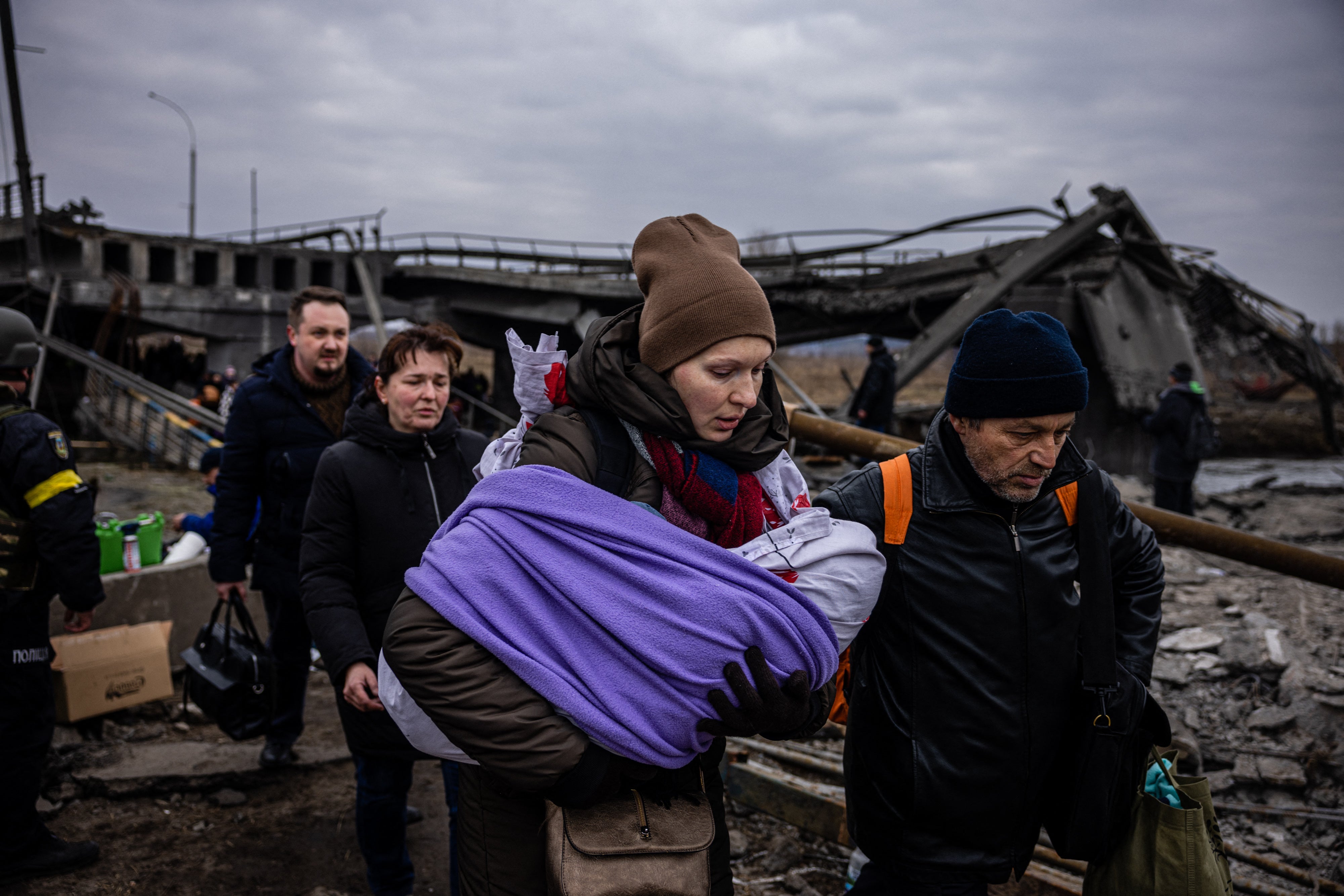Male leaders stifle our voices – yet women have proved they are the right people to lead
We should celebrate the women across the globe making a difference in times of crisis, writes Bianca Jagger


International Women’s Day is intended to be a moment to celebrate, but how can we summon a sense of celebration when we see our rights being eroded. Women are enduring shocking inequalities in countries around the world.
Day after day, I witness a world of intolerable injustices through my work at The Bianca Jagger Human Rights Foundation – the organisation I founded in 2005 – from the endless violence inflicted on women and girls through rape as a weapon of war, sexual assault, honour killings, dowry burnings, acid attacks, intimate partner violence, trafficking, genital mutilation, and women murdered at the hands of violent men.
Globally, almost one in three women have been subjected to physical or sexual intimate partner violence, sexual violence, or both, at least once in their lives. According to the UN, in 2020, 81,000 women and girls were killed – 58 per cent by an intimate partner or a family member. That’s one woman or girl killed every 11 minutes in their home.
That is added to the unequal distribution of resources preventing women and girls from realising their potential and exercising their rights to education, land ownership, equal pay and respect. And not forgetting the onslaught on women’s bodies, from maternal death to period poverty, or the objectification of women’s bodies in the media. The list goes on.
As a mother, grandmother and great-grandmother, I have lived long enough to witness progress gained on the one hand, yet lost on the other. I could cry when I hear of the generations of women in Afghanistan who are being denied access to education, healthcare, and the most basic civil and political rights. Just this week, we learnt of more than 1,000 girls being poisoned to force them out of school in Iran. All of this while crimes against humanity are being committed in Nicaragua, the country of my birth, where relentless and brutal violence against women continues unabated.
I am gravely concerned by the increasing frequency and magnitude of humanitarian emergencies we are seeing, as climate chaos and conflict unfold worldwide. Women and girls are almost always affected in unique and disproportionate ways.
Take the refugee crisis resulting from the terrible war in Ukraine: 86 per cent of those forced to flee Ukraine to other parts of Europe are women and children. Around the world, more than 150 million more women than men experienced hunger in 2021, including in east Africa, which is in the throes of a food crisis. And UN figures indicate that 80 per cent of people displaced by the climate crisis are women.
Like many, I was devastated to see the destruction in Turkey and Syria last month. Even before the earthquake, 60 per cent of the population of northwest Syria had been forced to leave their homes. The majority of these people are women and girls.
Natural disasters leave millions homeless, with women and girls at increased risk of exploitation and abuse as a consequence – including sexual violence, trafficking, and child marriage. When swathes of the population are stripped of their security, their shelter or their means to feed their families, women and children are all too often exploited. And when help is needed at home, or the cost of survival becomes too great, girls’ education is among the first casualties.
Yet women are largely absent from the decision-making tables at a national and international level, even though these decisions affect us the most. For example, at the Cop27 climate summit in Egypt, just seven out of the 110 world leaders present were women. Two-thirds of delegation members at recent Cop summits were male. Women are simply not given an equal opportunity to have their voices heard. Around the world, male leaders are stifling women’s voices. Governments are cracking down on freedom of speech and the right to protest, and they are holding women back.
Why? Women prove time and again that they are the right people to lead. Take Amran from Somalia, who is building latrines for displaced women in an effort to prevent them from being raped – as is all too common – while they go to the toilet outdoors. Or Ame from Bangladesh, who has developed an early-warning system for the island-dwelling women of her community at greatest risk of losing their homes to floods. Or Nada from Yemen, who mobilised the women of her community to rebuild the road to their village after it was destroyed in the country’s conflict. Or Daria from Ukraine, who fled her home in Kyiv and has spent the past year helping other refugees who have fled to Poland.
If you’re searching for something to celebrate this International Women’s Day, celebrate the women across the world who are making a difference in the homes, streets, shelters and camps devastated by crises. Because there you will find the female leaders, piecing together the families and communities broken by disaster.
I have participated in Care International’s #Walk4Women podcast, to elevate the voices of Amran, Ame, Nada, Daria, and other women on the frontlines of some of the world’s most urgent crises. I’m happy to lend my voice to highlight the injustices they have faced, and celebrate their inspiring achievements. These women are an inspiration, give us hope, and restore our faith in humanity.
I encourage you to “Walk4Women” wherever you are, while you listen to the podcast and the voices of women who are leading in crisis. Together we can support a woman’s right to lead, and celebrate the unbreakable female spirit emerging from the horror of war, the dust of the earthquake, the receding floodwaters, and the carnage of drought.
Bianca Jagger is the founder and president of The Bianca Jagger Human Rights Foundation
Join our commenting forum
Join thought-provoking conversations, follow other Independent readers and see their replies
Comments
Bookmark popover
Removed from bookmarks